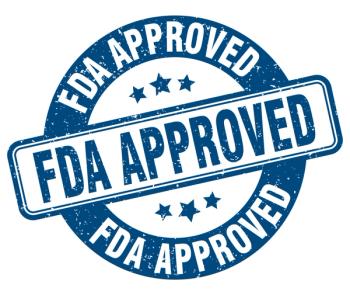
New law requires OTC adverse event reporting
Congress just passed and President Bush signed the Dietary Supplement and Nonprescription Drug Consumer Protection Act (S. 3546), also known as the Adverse Event Reports (AER) bill. The legislation will amend the federal Food, Drug & Cosmetic Act to require manufacturers to report "serious" adverse events for OTC drugs and dietary supplements to the Food & Drug Administration. The law becomes effective one year after its passage on Dec. 26.
Rick Kingston, Pharm.D., president of regulatory and scientific affairs at SafetyCall International, told Drug Topics, "Dietary supplement companies were pushing for the bill because they felt this would be a way to help consumers gain an additional level of confidence with their products."
Pointing out that when consumers call a company about a product issue, the issue is looked at as a customer complaint, Kingston said, "Now it will be looked at as an adverse event. There's going to be a recognition that some of these substances have pharmacologic and physiologic effects. Although not typically serious, they can cause adverse effects in some patients," he said.
Matthew Seamon, Pharm.D., J.D. candidate, assistant professor of pharmacy practice at Nova Southeastern University College of Pharmacy, Drug Information Center, Fort Lauderdale, Fla., gave a thumbs-up regarding the bill.
"The whole system is really broken. This is at least an acknowledgment that the system is failing and we're trying to improve the situation. Dietary supplements have always fallen under the radar for a number of reasons. It's finally time they are getting notice."
Seamon continued, "The bill reaffirms the whole focus on drug safety and adverse drug reaction reporting, which should be an important consideration for pharmacists." He said the bill would enable pharmacists to have more information and to be better able to monitor and evaluate patients and to make better recommendations.
Paul Doering, M.S., FAPhA, distinguished service professor of pharmacy practice, University of Florida College of Pharmacy, believes the bill is a step in the right direction, but it's not a panacea if the dietary supplement industry is not regulated.
"It is a step in the right direction but it's really an end piece before the beginning piece. It's not a giant leap," said Doering. He explained that certain dietary supplements such as kava kava, which has been linked to liver problems, have subtle adverse effects. "The problem is that many times the adverse effect of the drug is so subtle that it cannot easily be detected," he cautioned.
Kevin Clauson, drug information specialist, assistant professor, Nova Southeastern University College of Pharmacy, West Palm Beach, Fla., pointed out, "In the past we've seen underreporting of adverse events. I've seen estimates that less than 1% of all adverse events that occur have been reported. You still have to get those adverse events to be reported in the first place and to get the reports into a responsible person's hands to get them to the FDA," he said.
Clauson said he believes the legislation will create more counseling opportunities for pharmacists. "The onus is more on the healthcare professionals to communicate with their patients and to take really good patient histories and for pharmacists to interview the patients about what they are taking to help identify things that are less obvious and that have not been linked to these products."
Newsletter
Pharmacy practice is always changing. Stay ahead of the curve with the Drug Topics newsletter and get the latest drug information, industry trends, and patient care tips.























